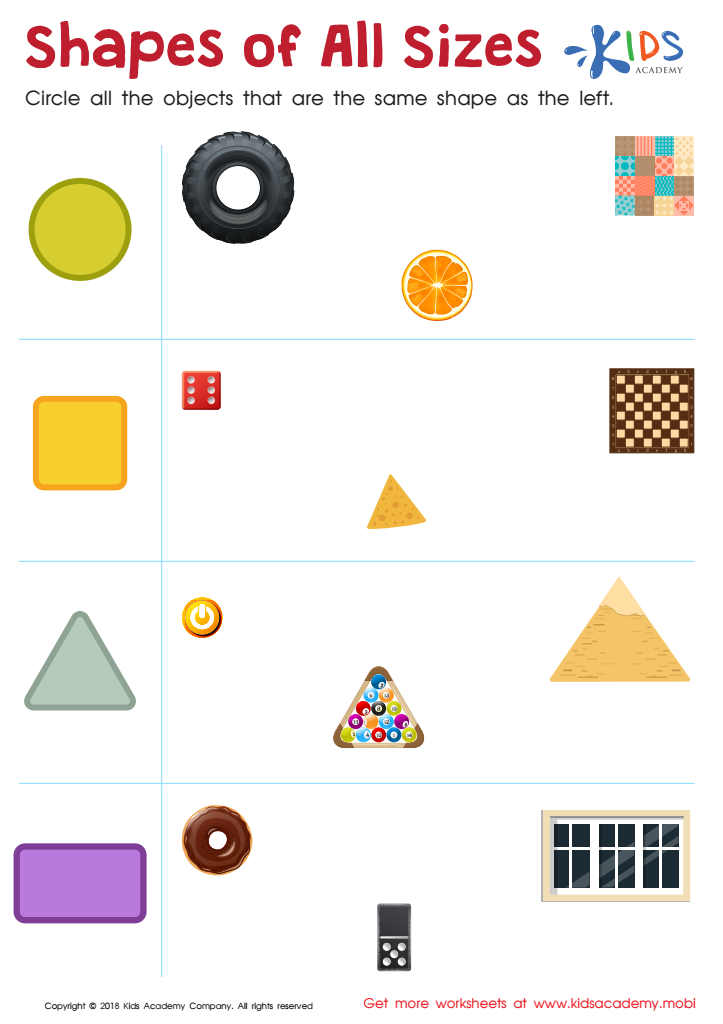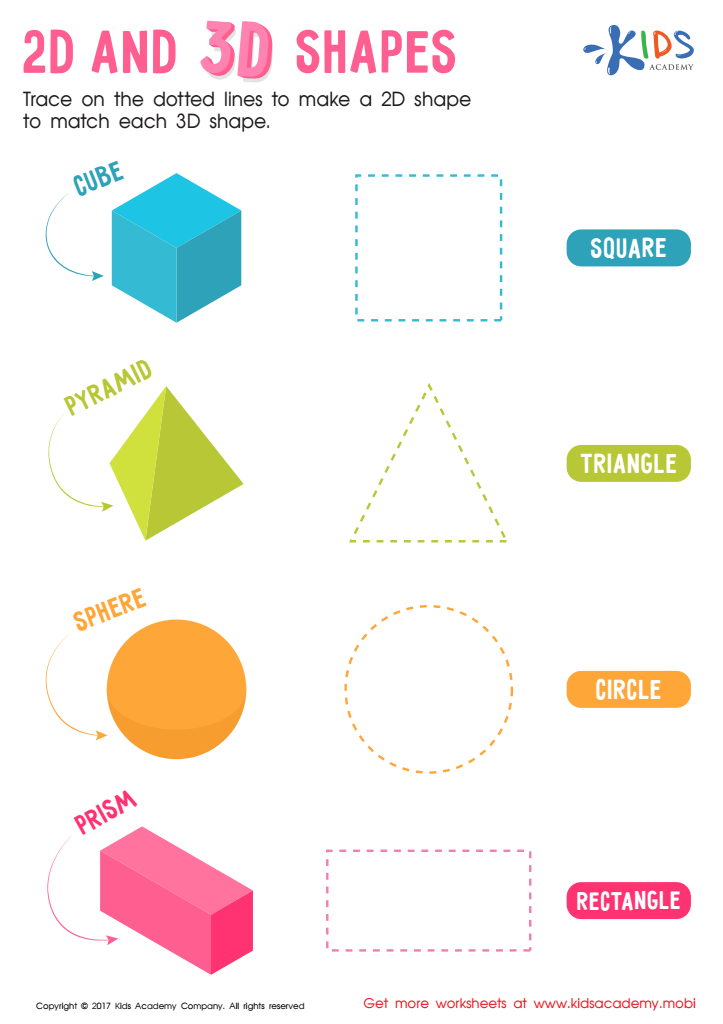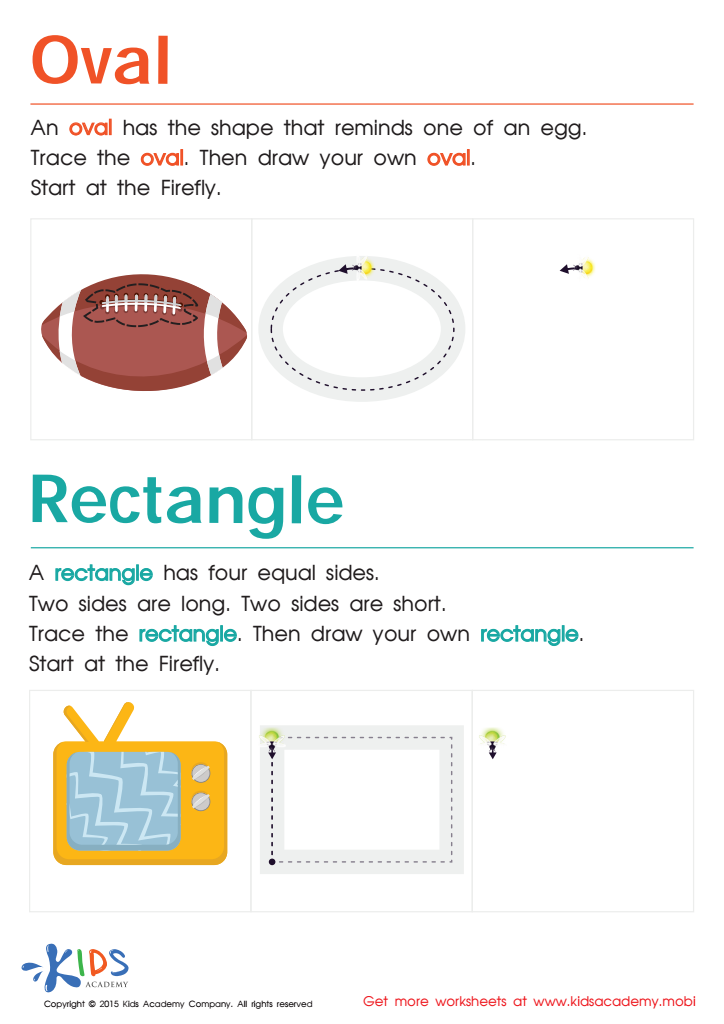Visual Perception Skills Geometry Worksheets for Ages 5-9
3 filtered results
-
From - To
Unlock your child's potential with our "Visual Perception Skills Geometry Worksheets for Ages 5-9"! Expertly designed by educational professionals, these engaging worksheets help young learners enhance their spatial awareness and visual tracking abilities. Perfectly tailored for kids aged 5 to 9, each activity uses fun geometric shapes and exciting challenges to develop critical thinking, pattern recognition, and problem-solving skills. Set a strong mathematical foundation while keeping your child entertained and motivated. Elevate their learning experience today with our dynamic, age-appropriate resources and watch them excel in both academic and everyday tasks.


Shapes of All Sizes Worksheet


2D and 3D Shapes Worksheet


Easy Drawing of Ovals And Rectangles Worksheet
Visual perception skills, particularly in the context of geometry, are fundamental for children aged 5-9 as they form the bedrock of future learning in both academic and non-academic areas. These skills involve the ability to interpret and make sense of visual information, which is crucial for reading, writing, and mathematics.
First, geometry helps children develop spatial awareness, enabling them to understand relationships between objects and their positions. This awareness is integral to daily tasks ranging from navigating spaces to organizing belongings.
Second, visual perception and geometric skills set a foundation for math success. Recognizing shapes, understanding symmetry, and comprehending dimensions and spatial properties underpin more complex mathematical concepts like algebra and calculus in later years.
Moreover, these skills enhance cognitive development by improving problem-solving abilities and precise motor coordination. For example, constructing shapes and patterns aids in honing hand-eye coordination and fine motor skills, essential for writing and other intricate tasks.
In addition, developing strong visual perception skills early can help in diagnosing and addressing learning difficulties. For instance, children with underdeveloped skills may struggle with tasks like discriminating between similar letters and numbers.
Thus, nurturing visual perception through geometric activities not only empowers academic achievement but also supports holistic cognitive development and functional daily living skills.
 Assign to My Students
Assign to My Students































